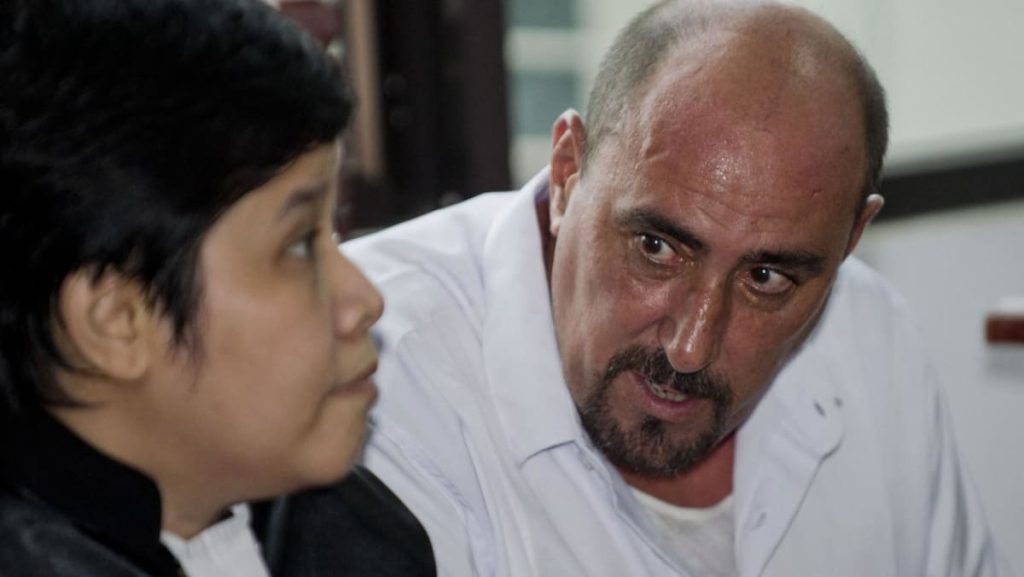Serge Atlaoui, a 61-year-old French national, finds himself at the center of a complex legal and diplomatic battle, facing the death penalty in Indonesia for drug-related charges. Arrested in 2005 at a suspected drug factory outside Jakarta, Atlaoui has consistently maintained his innocence, claiming he was unknowingly installing machinery in what he believed to be an acrylics plant. His initial life sentence was escalated to death in 2007 by the Indonesian Supreme Court, placing him on death row in the notorious Nusakambangan prison island, often dubbed Indonesia’s “Alcatraz.” While subsequently transferred to Tangerang, a city west of Jakarta, in anticipation of an appeal, the shadow of execution has loomed large over Atlaoui for nearly two decades.
The latest development in Atlaoui’s protracted legal struggle involves a formal request from the French government to Indonesia for his transfer back to France. This request, confirmed by Indonesian senior law and human rights minister Yusril Ihza Mahendra, marks a significant step in the ongoing efforts to secure Atlaoui’s release from death row. The request, submitted in late December 2024, is slated for discussion by Indonesian authorities in early January 2025. While the French embassy in Jakarta has remained reticent on the matter, Atlaoui’s lawyer, Richard Sedillot, expressed “immense hope” at this development, viewing it as the potential culmination of years of tireless legal and diplomatic efforts. The request offers a glimmer of hope in what has been a long and arduous fight for Atlaoui and his supporters.
Atlaoui’s case has been marked by a series of appeals and legal maneuvers. In 2015, he narrowly escaped execution alongside eight other drug convicts due to intensified diplomatic pressure from France, which secured a temporary reprieve allowing for an outstanding appeal. This appeal challenged then-president Joko Widodo’s rejection of Atlaoui’s clemency plea, arguing that the president had not given due consideration to his case. Clemency is typically the last resort for death row inmates seeking to avoid execution. However, the court ultimately upheld its earlier decision, stating it lacked jurisdiction over challenges related to clemency pleas.
The French government’s official request for Atlaoui’s transfer comes amidst a backdrop of recent releases of high-profile detainees in Indonesia. These include several members of the “Bali Nine” drug ring and, notably, Mary Jane Veloso, a Filipina woman on death row for drug offenses. Veloso’s transfer back to the Philippines earlier in December 2024, where she now awaits a potential pardon, provides a precedent and a source of hope for Atlaoui’s supporters. These releases, coupled with the French government’s formal request, suggest a potential shift in Indonesia’s approach to drug-related offenses and the application of the death penalty.
The anticipation surrounding Atlaoui’s potential transfer is underscored by the long-standing campaign by human rights organizations, such as Together Against the Death Penalty (ECPM), which has tirelessly advocated for his release. ECPM director Raphael Chenuil-Hazan described the French government’s request as the “penultimate step in a long fight,” expressing hope that the transfer will soon become a reality. The organization’s sustained advocacy, alongside diplomatic efforts from France, has played a crucial role in keeping Atlaoui’s case in the public eye and maintaining pressure on Indonesian authorities.
While the recent releases and the French government’s request offer a glimmer of hope, the situation remains complex. Indonesia maintains some of the world’s strictest drug laws and has a history of executing foreigners for drug-related crimes. Despite a moratorium on executions since 2016, the Indonesian government has recently indicated its intention to resume executions for drug convicts on death row. This casts a long shadow over Atlaoui’s fate and the fate of hundreds of others, including over 90 foreigners, currently facing the death penalty in Indonesia for drug offenses. The upcoming discussions in January regarding the French government’s request for Atlaoui’s transfer will be a critical juncture, determining whether he will be granted a reprieve or face the ultimate penalty.

